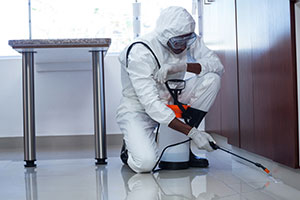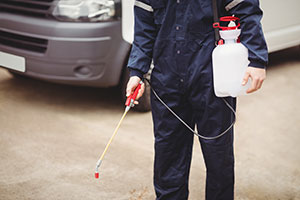
The Silent Invaders: Detecting and Preventing Termites in Your Residence
Ever feel like you're not alone in your own home? You're right, you aren't. Those tiny, silent invaders, termites, could be feasting on your property's structure.
It's time you learnt how to detect and prevent these unwanted guests. This guide will arm you with knowledge about termite behavior, detection methods, and prevention strategies.
Don't let them eat you out of house and home. Stand up, be proactive, and protect your space.
Understanding Termite Behavior
Before you can effectively combat termites, it's crucial to understand their behavior. Termites aren't just pesky insects that you can swat away. They're social creatures, living in organized colonies, just like us. We're not so different, you and these termites. You both value community and structure.
Termites have a caste system, with different roles for each member. There are workers, soldiers, and the royal couple. The workers, much like you and your everyday tasks, are the heart and soul of the termite community. They're responsible for gathering food and maintaining the nest. The soldiers, akin to security guards, protect the colony from threats. Lastly, the royal couple, or the king and queen, are the parents of the colony.
What makes termites troublesome to us is their dietary preference for cellulose, a component found in wood. They can't resist the taste of your wooden furniture or the wooden structures of your home. They're not doing this to upset you; they're just trying to feed their family.
Understanding their social structure and dietary habits can help you come up with an effective plan to protect your home. You're not just killing pests; you're disrupting an entire community. It's like in your community, if the local grocery store suddenly closed down, it would affect everyone. That's the kind of impact you're aiming for.
Common Signs of Infestation
Armed with an understanding of termite behavior, you're now better equipped to recognize the common signs of an infestation in your home. However, these silent invaders are often so subtle that their presence could go unnoticed until it's too late. That's why it's crucial to know what to look out for.
Here's a simple guide to help you spot the telltale signs:
1. Mud Tubes: Termites are clever creatures that build these pencil-thin tunnels to provide a safe route from their nest to your home. If you spot these around your property, it's a clear sign that termites are on the move.
2. Discarded Wings: After swarming, termites shed their wings. You might find piles of these tiny, translucent wings near windows, doors, or other access points.
3. Damaged Wood: Termites consume wood from the inside out, leaving behind a thin veneer of wood or paint. If you tap on a termite-damaged area, it will sound hollow or papery due to the damage inside.
4. Termite Droppings: Termites clear out their nests by pushing out small, pellet-like droppings. Finding these around your home is a strong indicator of an infestation.
The Types of Termites
Now, you've got to familiarize yourself with the three main types of termites that could be invading your home: subterranean, drywood, and dampwood termites.
Each has its own unique characteristics and habitat preferences. Let's delve into each type and learn how to identify them.
Subterranean termites, as their name suggests, live underground in large colonies. They're the most destructive kind, causing major damage to homes. You'll most likely find them in your home's foundation or any wood in contact with the ground. They create mud tubes for traveling, which are a clear sign of their presence.
Drywood termites, unlike their subterranean counterparts, don't need soil contact. They can infest any dry wood structures, including your furniture. They're less noticeable as they don't create mud tubes. However, they leave behind droppings or 'frass', that look like small wood-colored pellets.
Dampwood termites prefer wood with high moisture content. They're larger than the other types and usually infest logs, stumps, or dead trees. Although they're less common in homes, they can still infest any damp wooden areas, like leaky pipes or roofs.
Being part of the community means looking out for each other. So, share this knowledge with your neighbors, friends, and family. By understanding the different types of termites, we're all better equipped to protect our homes from these silent invaders.
Steps in Detecting Termites
Having familiarized yourself with the types of termites, it's crucial to know the steps in detecting these pesky intruders in your home. You're not alone in this fight, and it's important to remember that we're all in this together.
Here are four essential steps you can take to keep your home safe from the silent invaders:
1. Look for physical signs of termites: This includes the presence of mud tubes, wood that sounds hollow when tapped, and discarded wings from swarmers. You may also notice tiny termite droppings, known as frass. It's not a pleasant task, but it's necessary to protect your home.
2. Monitor for swarming termites: Swarming typically occurs during warm, rainy weather. If you notice a swarm of insects in or around your home, it could be a sign of a termite infestation. Don't panic, you're not alone, and we're here to help you through this.
3. Check areas prone to moisture: Termites love damp and humid areas. Regularly inspect places like your basement, attic, and areas around leaky pipes. This preventative measure can save you a lot of hassle down the line.
4. Consider professional termite inspection: Sometimes, it's best to call in the experts. A professional termite inspector can provide a thorough evaluation of your property and offer advice on preventative measures.
Effective Prevention Strategies
The next step in your battle against these silent invaders is to implement some effective prevention strategies. You're not alone in this fight; we're all in it together, striving to protect our homes from these destructive pests.
Firstly, remove their potential food sources. Termites feast on wood, so ensure your home's timber isn't touching the soil. This includes your firewood and mulch; keep them well off the ground and away from your home's foundation.
Next, keep your property dry. Termites love moisture and are more likely to invade a damp home. Regularly check your home's plumbing for leaks, keep your gutters clean and clear, and use dehumidifiers in damp areas like basements.
Another effective strategy is to seal all possible entry points. Cracks in your home's foundation, gaps in windows and doors, and spaces around utility lines can all provide easy access for termites. Regularly inspect these areas and seal any openings you find.
Lastly, consider regular professional inspections. Pest control experts have trained eyes that can spot termite activity that you might miss. They can also provide additional prevention measures, like chemical barriers or bait stations.
Remember, prevention is always better than cure. By taking these steps, you're not just protecting your home, you're also joining a community of homeowners who are committed to keeping these silent invaders at bay.
It's not just about the battle, it's about standing together, because when it comes to termite prevention, we're stronger as a team. Let's keep our homes, and our community, termite-free.
Professional Vs. DIY Termite Control
While you're taking these prevention measures, you might wonder if you should tackle termite control on your own or hire a professional. It's a valid question, and the answer depends on your comfort level, skill set, and resources.
Here's something to consider: You're not alone in this fight against these silent invaders. We're in this together.
Here are four key factors to consider:
1. Knowledge: Professionals have extensive training and experience in termite control. They know what signs to look for, where to look for them, and how to effectively treat the problem. Can you match this level of expertise?
2. Time: A thorough termite inspection and treatment can take several hours or even days. Do you have the time and patience to devote to this task?
3. Safety: Some termite treatments involve the use of chemicals that can be harmful if not handled correctly. Professionals know how to safely use these products. Are you prepared to take this risk?
4. Cost: Hiring a professional may seem more expensive upfront, but consider the potential cost of not fully eradicating the termites and suffering further damage to your home. Is the potential saving worth the gamble?
Ensuring Long-Term Protection
You've tackled the immediate termite threat, but how do you ensure your home's long-term protection against these silent invaders? To safeguard your home for years to come, a multi-pronged approach combining prevention, early detection, and ongoing maintenance is essential.
Firstly, let's focus on prevention. You can minimize the appeal of your home to termites by reducing moisture around your property. Fix any leaks promptly, ensure proper drainage, and keep firewood or other wood debris away from your home. Also, maintain a barrier between any wood portions of your house and soil.
Next, early detection is key. Regularly inspect your home for signs of termite activity, such as mud tubes, bubbling paint, or hollow-sounding wood. If you're not comfortable doing this, consider hiring a professional inspection service. Remember, the earlier you detect a problem, the easier it's to manage.
Finally, ongoing maintenance and professional checks are vital. Even if you've successfully dealt with a termite invasion, it doesn't mean they won't return. By scheduling regular termite inspections, you'll stay one step ahead.
Remember, you're not alone in this. Millions of homeowners face the same challenge and, just like them, you can effectively protect your home. Join local community groups or online forums for additional advice and support. We're all in this together, fighting against these silent invaders to ensure our homes remain our safe havens.
Key Takeaways
- Termites are social creatures with a caste system and different roles within the colony.
- There are different types of termites, such as subterranean, drywood, and dampwood, each with their own characteristics and habitat preferences.
- Detecting termites involves looking for physical signs, monitoring for swarming termites, checking moisture-prone areas, and considering professional inspections.
- Effective prevention strategies include removing potential food sources, keeping the property dry, sealing entry points, and regular professional inspections.




